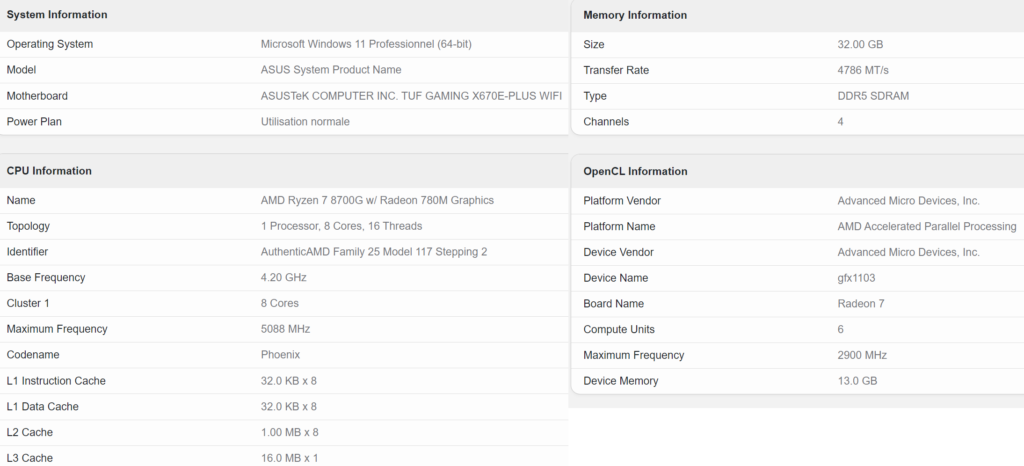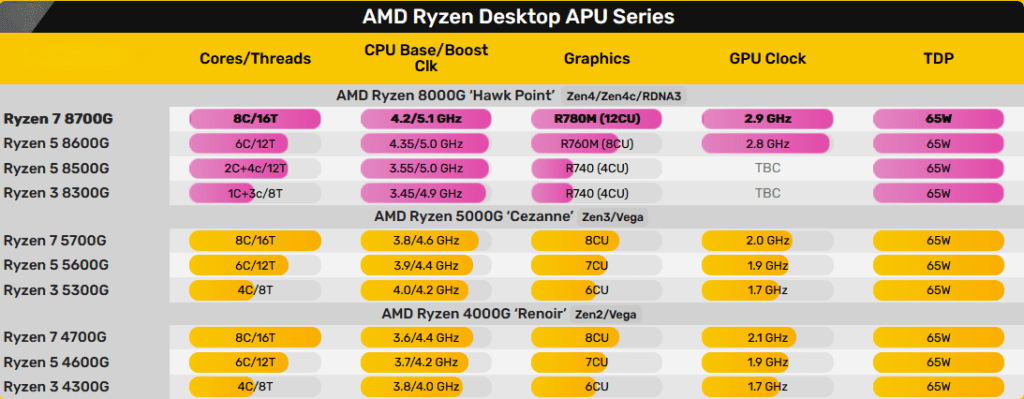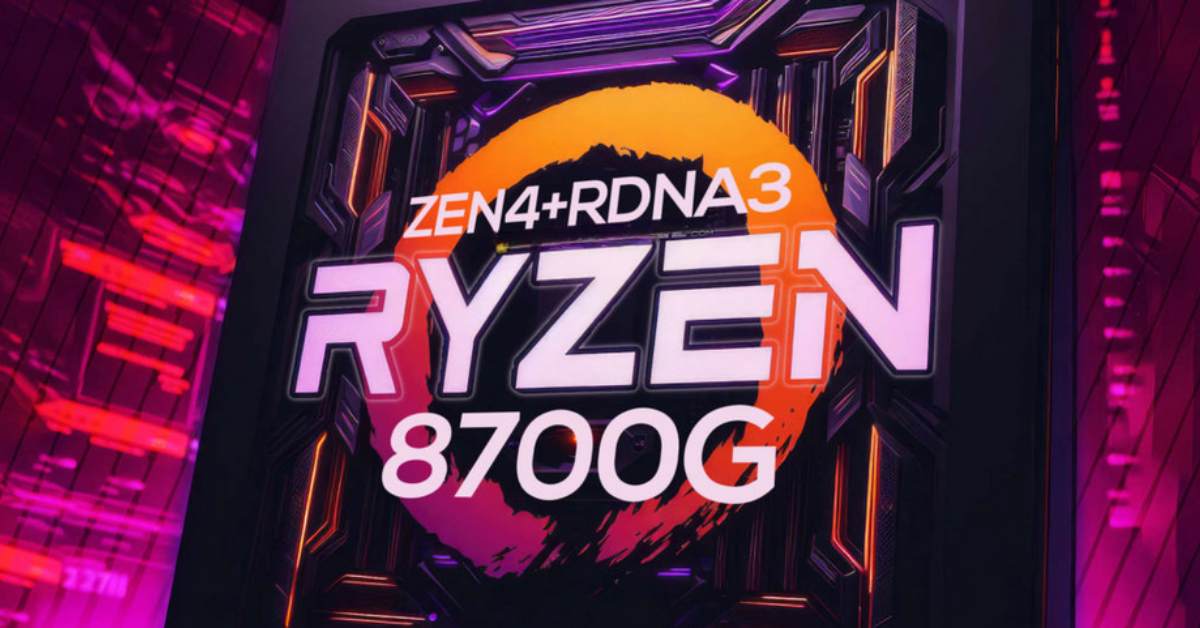Desktop Ryzen 8000G “Zen4” APU with fast integrated graphics
Drawing upon the latest developments in the world of advanced processing units, the tech sphere is abuzz with the recent showcase of AMD’s swifter and more robust Ryzen 7 8700G model. This unit marks a significant upgrade from its predecessor, the Ryzen 5 8600G, boasting a full array of 8 Zen4 cores and a substantial 16 threads.
In a series of tests executed on the ASUS TUF X670E-PLUS motherboard, which supports the AM5 socket, the prowess of the APU, coupled with 32GB of DDR5-4800 memory, was put on full display. Performance benchmarks highlight a commanding 4.2 GHz base clock alongside an impressive 5.1 GHz peak clock rate for the APU, which translates to an enhancement of 400 to 500 MHz over the fastest available desktop APU at the moment, the Ryzen 7 5700G with its 8 Zen3 cores.

The latest upgrade of AMD’s APU series, the Ryzen 8000G, ushers in a comprehensive update that transcends beyond mere CPU enhancements. The integration of a more advanced graphics subsystem is a headline feature, transitioning to the cutting-edge RDNA3 architecture, a leap that surpasses two prior RDNA generations and promises a significant performance uplift for AMD’s desktop APU lineup.
Insights from recent leaks point to the Ryzen 7 8700G APU being equipped with the potent Radeon 780M graphics, comprising 12 Compute Units, and touting an impressive boost clock of 2.9 GHz. This advancement, coupled with the desktop form factor’s more forgiving thermal and power limitations, suggests the potential to surpass 3.0 GHz frequencies with ease.
Performance metrics gleaned from Geekbench, utilizing OpenCL and Vulkan APIs, have yielded scores of 29,244 and 35,427, respectively. These figures suggest that the APU’s performance is on par with Phoenix-based mobile APUs of similar specifications. When compared to the Ryzen 7 5700G’s “RX Vega 8” integrated graphics, the new unit is expected to deliver at least double the speed. However, it is important to consider that synthetic benchmarks may not always align with actual gaming performance, and for a definitive assessment, one would be wise to await independent reviews.

Source: Geekbench (Vulkan), (OpenCL)



